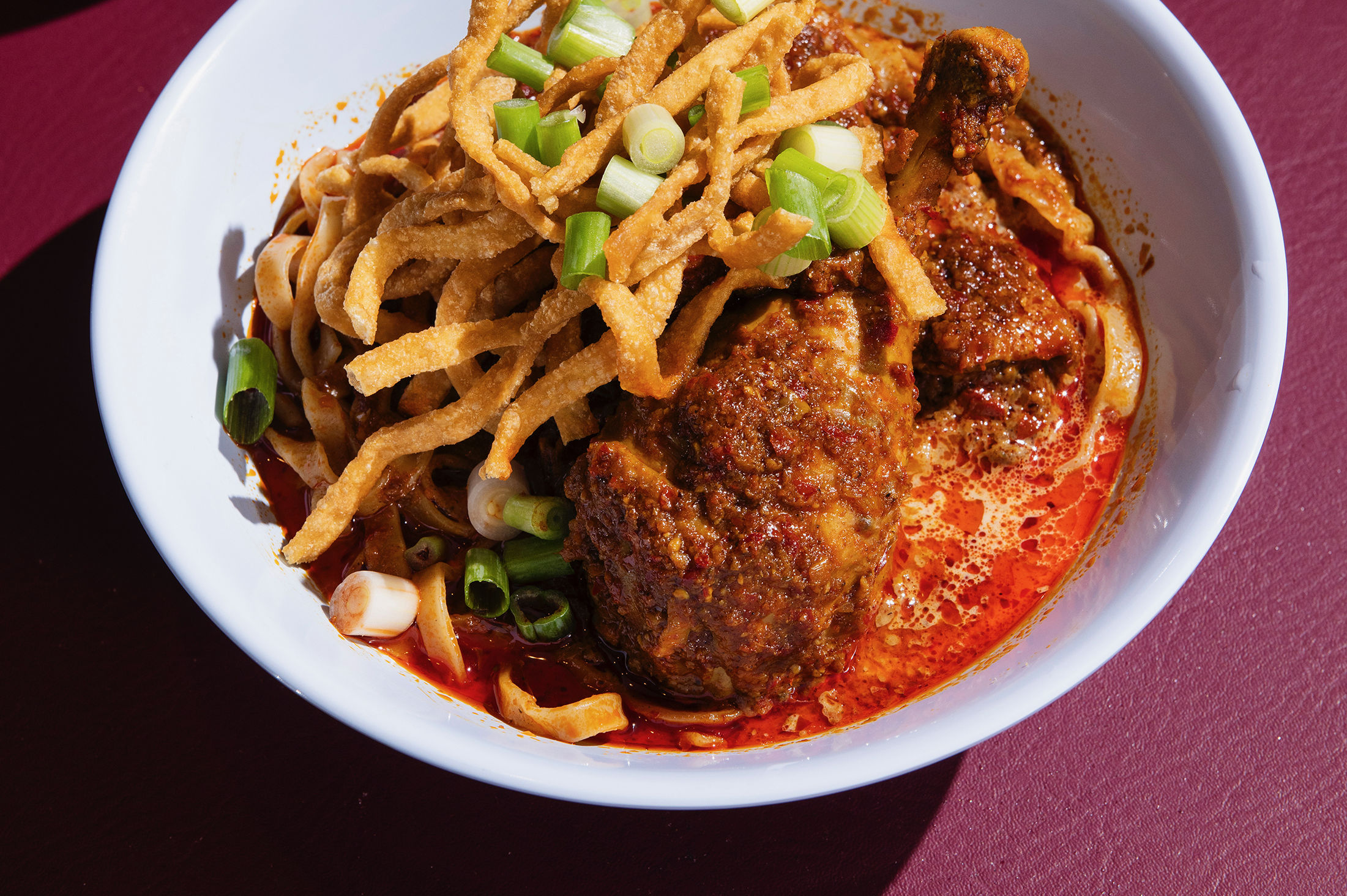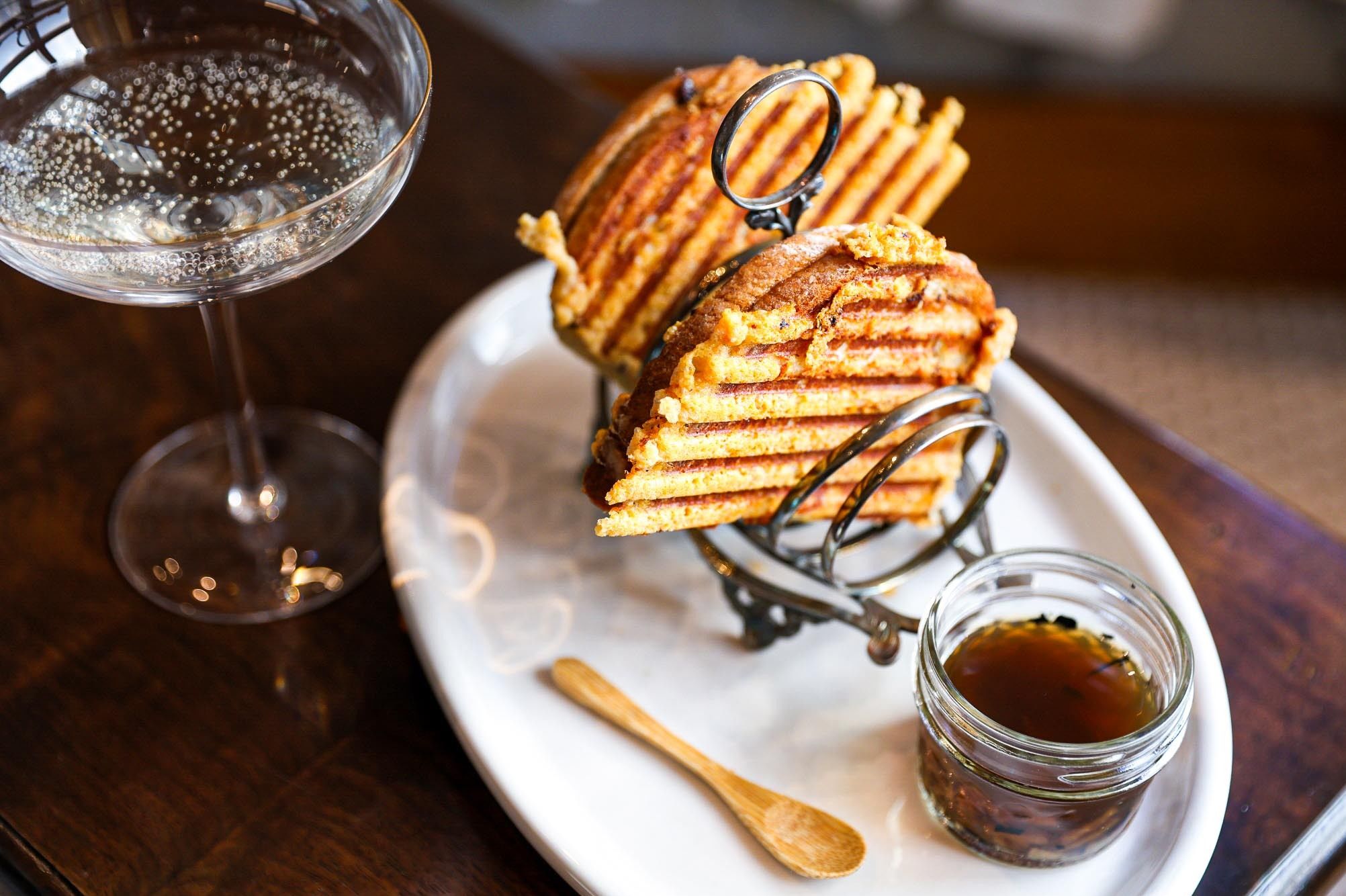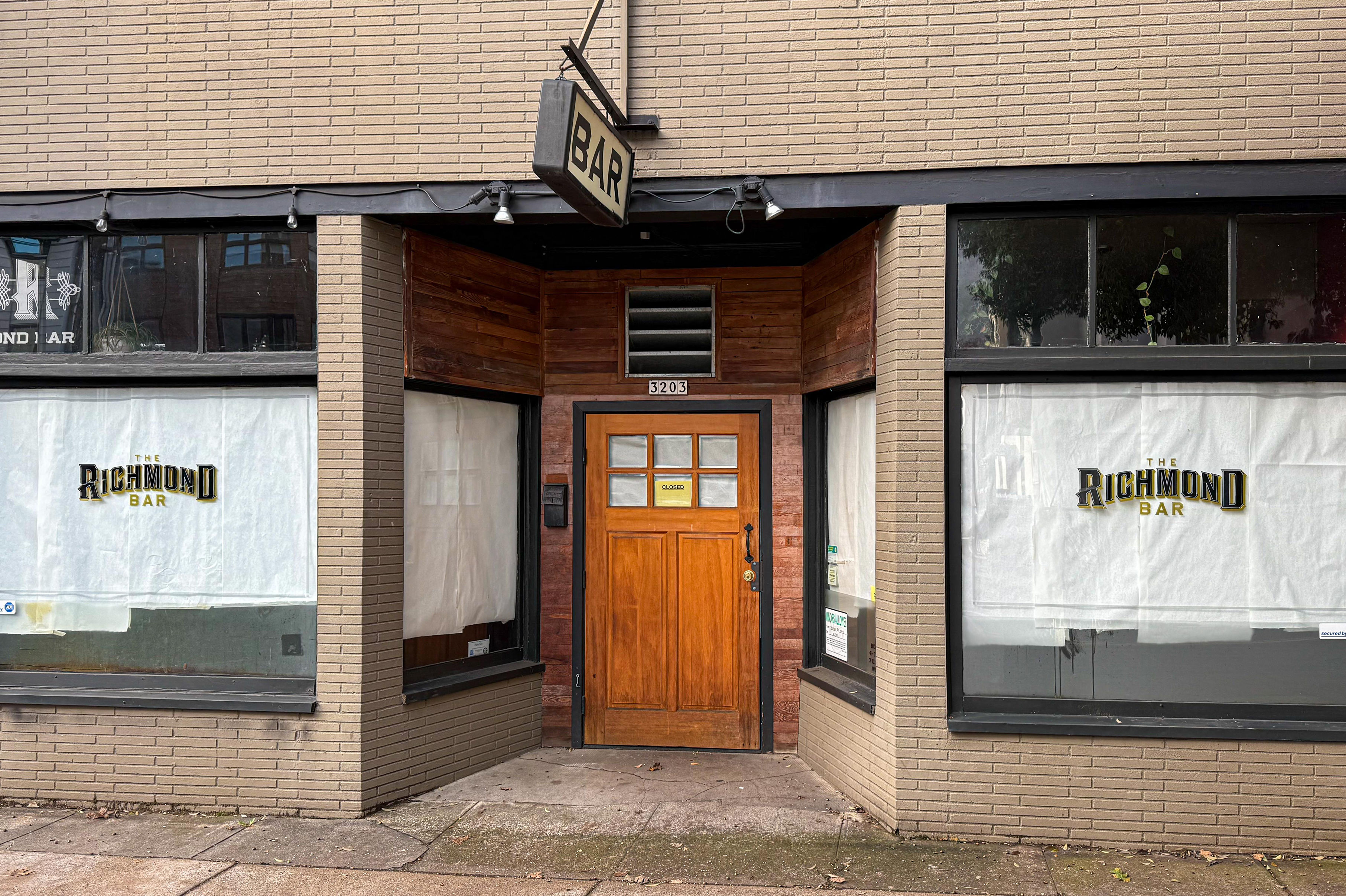A Tale of Two Ghost Kitchens
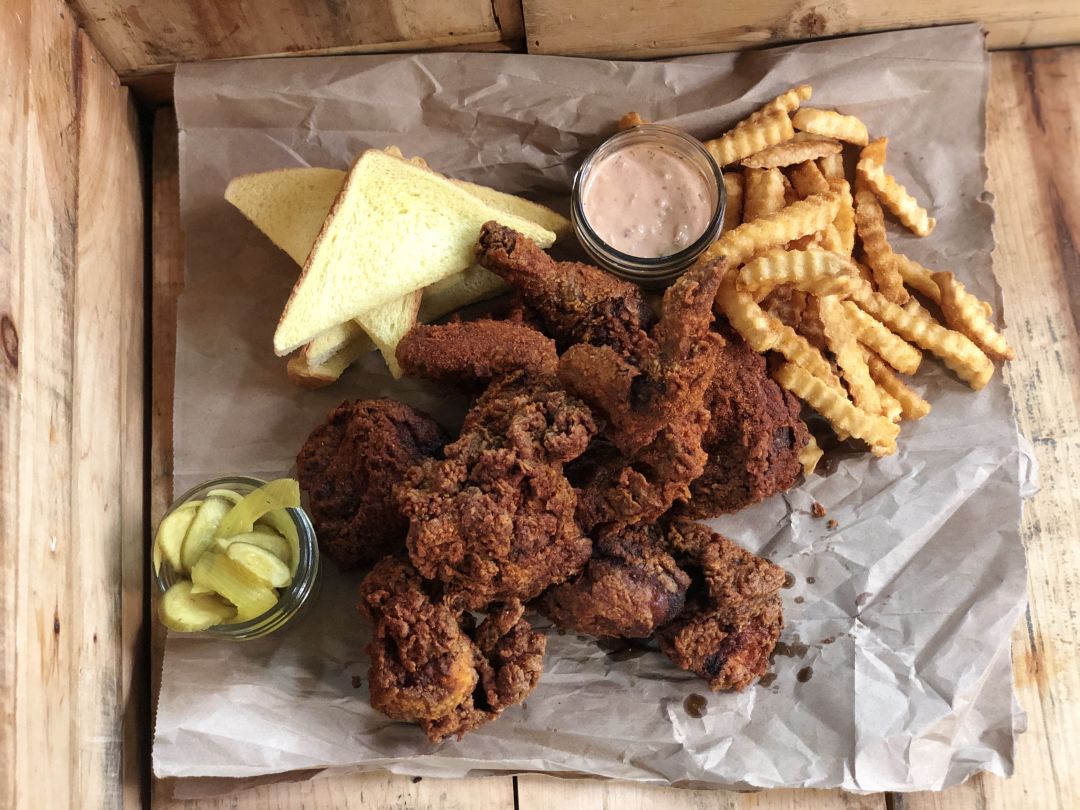
A plate of Nashville-style hot chicken from delivery-only restaurant Charlie's Hot Chicken.
Image: Courtesy of ChefStable
In the pre-pandemic world, many people treated ghost kitchens with an air of suspicion. Ghost kitchens are commissary kitchens that have no public brick-and-mortar presence; they serve customers via delivery only. But in late 2020, two of Portland’s big-name restaurateurs are adopting the delivery-only model via ghost kitchens. Doug Miriello of Dimo’s Apizza, in collaboration with restaurant group ChefStable, is launching a new delivery-only Nashville hot chicken concept, Charlie’s Hot Chicken. Andy Ricker of Pok Pok is teaming up with Reef Kitchens to sell Ike’s Vietnamese Fish Sauce Wings via delivery only, allowing him to clear unused chicken wing inventory and donate the proceeds toward a good cause.
Though the delivery-only food model has been growing in recent years, Kurt Huffman, the founder of ChefStable, certainly didn’t see himself getting involved with ghost kitchens prior to the pandemic.
“Pre-COVID, the idea of making food and not seeing people... I didn’t understand the interest or the appeal,” Huffman says. “The reason I think most of us are in hospitality is because we really like engaging with people ... but COVID definitely forced us to reassess what we need to look at.... Ghost kitchens came from being something that didn’t seem particularly interesting to me into something that might be necessary for us to survive.”
Miriello, the chef of New Haven-style pizza pop-up Dimo’s Apizza, is also the head of catering at ChefStable. Because the pandemic brought the catering business to an almost complete halt, ChefStable transformed the catering kitchen into a ghost kitchen. Huffman says ChefStable is using the same catering staff to execute Miriello’s delivery-only concepts, using UberEats and Postmates to deliver its orders.
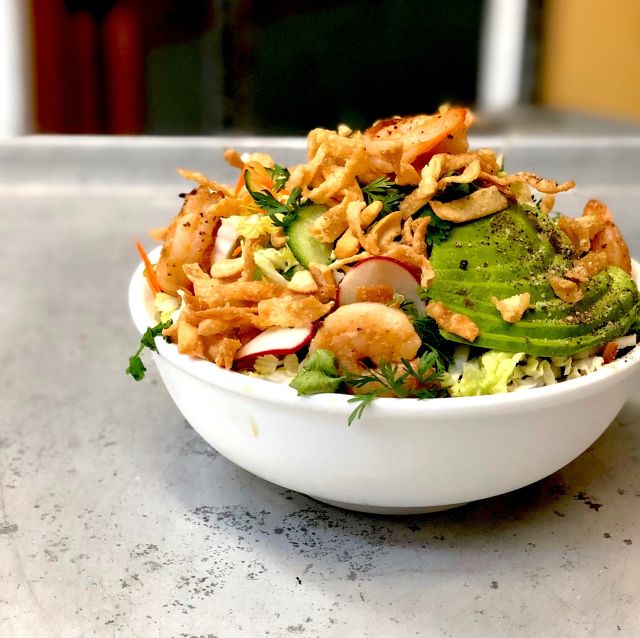
The cabbage citrus crunch salad from Waldorf & Cobb.
Image: Courtesy of ChefStable
The first of those concepts is Charlie’s Hot Chicken, serving Nashville-style hot chicken in five spice levels and many iterations: as a sandwich, as tenders, wings, pieces, atop loaded fries or a salad, or in family-size meals. Miriello also recently launched another delivery-only concept, Waldorf & Cobb, whose menu includes salads and wraps. Huffman says there are more delivery concepts from Miriello to come this fall, and he plans to partner with other chefs, too.
Andy Ricker of Pok Pok is taking a different approach to the delivery-only concept. Four of the five Pok Pok restaurants in Portland have closed permanently, leaving only the original location on Division. Ricker plans to keep that location closed—no takeout, no delivery, nothing—until there’s a vaccine, and depending on how things shake out, the restaurant may never reopen.
With 3,200 pounds of prepared frozen chicken wings at his warehouse that was closing due to the pandemic, Ricker was trying to avoid wasting inventory. He only had one restaurant kitchen, and only two employees after laying off nearly all of his staff earlier in the pandemic. Food banks wouldn’t accept the wings because they couldn’t take par-cooked products. Ricker says he tried to partner with other restaurant owners to cook and donate the wings, but the owners he spoke to were busy enough trying to keep their own restaurants above water.
So Ricker teamed up with Reef Kitchens, a Miami-based network of ghost kitchens in converted shipping containers located in parking lots, to sell his famous chicken wings starting today via Grubhub, UberEats, and Postmates. There are around seventy Reef kitchens nationwide, 14 of which are in Portland, according to Reef’s chief creative officer, Alan Phillips. (For some local context, Reef was the ghost kitchen behind David Chang’s short-lived Portland fried chicken pop-up Fuku, which closed in April after many Portlanders called for a boycott in favor of supporting local restaurants during the pandemic instead.) Reef Kitchens is part of Reef Technologies, formerly known as ParkJockey, which started as a parking app. Now, along with parking, the company is involved with grocery and package distribution and logistics, urban farms, and even COVID testing, all located in pods in parking lots.
Philips explains the model like this: Restaurants are paid a licensing fee. The restaurant’s staff trains Reef kitchen staff on how to cook the dishes, and from there on out, the dishes are prepared entirely by Reef staff who also handle the sourcing of ingredients and the delivery of the food. There’s no cost to the restaurant; instead, the restaurant earns a percentage of revenue from orders.
In the case of Pok Pok, however, Reef purchased the wings from Pok Pok, allowing Ricker to recoup some of his losses. All proceeds from wing sales benefit the Immigrant Legal Resource Center, a cause that’s especially important to Ricker after one of his employees was detained by ICE.
“I’m hyper aware of this idea of Reef being a horrible empire,” says Ricker. “But the fact is, they’re employing Portlanders ... they pay well and they’re providing a service for people.”
Ricker’s Pok Pok pop-up is temporary—once they’re out of wings, that’s it. For now, he has no plans to partner with a ghost kitchen permanently, though that’s not set in stone.
“I don’t know if [ghost kitchens are] right for Pok Pok, but it’s certainly one of the things you’re probably going to see in the future,” Ricker says. “I don’t care what anybody says—it’s not economically viable to run a restaurant the way it was run before COVID hit, for the vast majority of people.”
